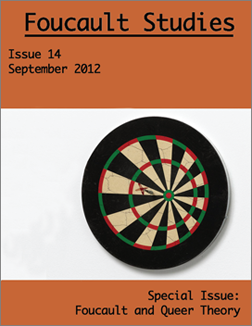Confession, Voice and the Sensualization of Power: The Significance of Michel Foucault’s 1962 Encounter with Jean-Jacques Rousseau
DOI:
https://doi.org/10.22439/fs.v0i14.3896Abstract
Michel Foucault is known for his critiques of the intertwinement of empirical knowledge, perception and experience, and power. Within this general framework, this article focuses on a fairly unnoticed text of Foucault’s: his 1962 Introduction to Jean-Jacques Rousseau’s Dialogues. The article shows that Foucault’s Introduction is central for more than one reason: Firstly, it is apparently the first piece, in which Foucault focuses in detail on confession as an individualizing mode of power and truth-utterance. Secondly, in this text, Foucault treats confession as an empirical, sensual and affective form of power. Thirdly, in this early text, Foucault presents what can be called his critique of phonocentrism, i.e., of the interrelated centrality of voice, hearing, authenticity and “presence.” We find out that Foucault elaborated this critique (from the starting point of his archaeology of knowledge), already before Jacques Derrida introduced the actual term “phonocentrism,” and made it generally known. Finally, we will see that Foucault’s seminal 1970s genealogies of confession, sexuality and pastoral power revisit as well as revise the earlier insights discovered in the Introduction.Downloads
Published
2012-09-14
How to Cite
Siisiäinen, L. (2012). Confession, Voice and the Sensualization of Power: The Significance of Michel Foucault’s 1962 Encounter with Jean-Jacques Rousseau. Foucault Studies, (14), 138–153. https://doi.org/10.22439/fs.v0i14.3896
Issue
Section
Articles
License
Authors retain copyright to their work, but assign the right of the first publication to Foucault Studies. The work is subject to a CC BY-NC-ND 4.0 license, but despite these restrictions, authors can take for granted that Foucault Studies will permit articles published in Foucault Studies to be translated or reprinted in another format such as a book providing a full reference is made to Foucault Studies as the original place of publication.



